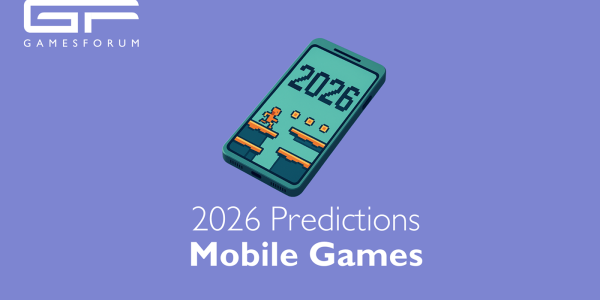Omega Legends falls short of Battle Royale Alphas

Omega Legends is a free-to-play, third-person battle royale hero shooter that combines the mechanics of Apex Legends with the speed and movement of Fortnite (minus the building). Despite the polished visuals -- the animations and models really are excellent -- balancing issues, some boring hero designs, and a design philosophy that seems to prioritize simplicity over depth make Omega Legends a game that isn’t really worth investing long hours into.

Learning to play Omega Legends should be easy for anyone with even a passing familiarity with battle royales. Teams of up to three players leap from a flying vehicle onto a huge map where they’ll fight and compete with other teams over the weapons and gear scattered throughout the play area. The goal is to be the last team standing at the end of a match.
At the start of a match, the whole map can be explored, but the safe playable zone will shrink at regular intervals. Anyone outside of the safe zone will take damage over time from a toxic gas that can be lethal if they don’t quickly move into the safe zone. On occasion, “bombardings” (indicated by a red circle on the map) will occur at a random location within the safe zone, temporarily making that a volatile zone where players can be damaged or killed by random airstrikes.

Omega Legends employs a “captain” system similar to that in Apex Legends. A random team member is assigned the captain’s role at the start of a match, and they have the ability to control where they and their teammates will land. This helps solve the problem of teammates landing in spots that are far away from backup, though team members can still opt to stop following their captain and take back control over their character. It’s a great mechanic that encourages teamwork from the jump, and I’m happy to see it implemented here.
Omega Legends is a hero shooter, and there are seven heroes to choose from, each with their own abilities. The developers seem to be afraid of any truly game-changing skills (probably for balancing reasons) so the skills available to most heroes are rather underwhelming. Aurora, the healer, has a particularly boring set of skills -- one that adds a shield and movement speed to allies, and the other drops a healing ward that heals up teammates within its radius -- but none of the other heroes are much better. The skills in Omega Legends mostly provide stat buffs to you and your teammates, so you won’t find the type of tide-turning abilities with the impact of Apex Legends’ Rolling Thunder or Gas Traps.

One of Omega Legends’ major features is its day-and-night cycle. It doesn’t do much to affect gameplay other than making the world a bit darker and slightly reducing draw distance. Other characters remain just as visible in the night as they are in the day, and an indicator will show you where shots are being fired from anyway, making this feature pointless.
While there are different tiers of gear, you can spend coins accumulated during a match to upgrade your current equipment to a higher tier. This removes a lot of the luck inherent in the battle royale genre. Instead of landing at a spot and hoping there's some high-tier gear to pick up, you can grab whatever's around and know that with a few kills and some patience, you'll be able to upgrade your loadout to survive in the late game.

The cost of upgrades appears to be balanced to ensure parity of player gear throughout a match. While I certainly didn't miss the feeling of being outgunned because of unlucky gear spawns, the idea that all players should be equally powerful at all times feels contradictory to the spirit of the genre. Knowing when to take a fight based on position, numbers, and your gear is an essential skill in all battle royales; removing it here makes Omega Legends a much simpler game than its peers.
Originally, I thought the point of giving players a mostly equal power curve throughout a match would mean a greater emphasis on shooting skill. Since gear no longer offers a significant advantage in a firefight, logically the players with the better aim and quicker reflexes should consistently win duels. Unfortunately, even with the reduced effect of luck, there's a feature in Omega Legends that makes individual skill less important than it should be: aim assist.
While aim assist is generally frowned upon in competitive shooters, more casual games like Free Fire have implemented aim assist with success. But while Free Fire's auto-aim gently nudges your crosshair toward the nearest target, the aggressive aim assist in Omega Legends causes a sharp snapping effect that can be disorienting in the middle of a firefight.
Once locked on, there’s enough give there to allow for slight adjustments to your shot (i.e. going for a head shot instead of a body shot), but for the most part, the game takes care of aiming for you. While this helps newer players hit the ground running, it also significantly lowers the skill ceiling. As a result, the victor in a duel is often determined by who fires the first shot rather than who has the better aim.
Monetisation Model of the "Omega Legends"
As is typical of battle royale games, Omega Legends uses a monetisation model that’s heavily inspired by Fortnite. Players can make in-app purchases of cosmetic items, like skins, celebrations, and portraits. There’s also a seasonal battle pass that offers rewards for completing missions, but as always, the best loot is locked away behind a premium paywall. Every day you can open one free chest containing a random item by watching a rewarded video ad.
It’s worth noting that while the text descriptions for all in-app purchases currently say they “grant permanent use” of the skin, the language here may indicate some future items will be temporary.

One of the toughest challenges for any free-to-play game developer is figuring out how to get players to make that first purchase. Omega Legends has a simple, uncluttered in-game shop that makes buying items straightforward. There are a number of bundles available for value hunters -- most notably the starter bundle, which comes with several items. To further incentivize that first purchase, players will also get a bundle containing one free weapon, hero, and drone skin after buying their first item.

There are a number of mechanics designed to keep players coming back every day: daily and weekly missions, events, and the seasonal battle pass.
There are two battle pass tiers: free and Gold. You can also spend some Coins to upgrade your free battle pass and unlock more rewards without buying a Gold Pass, which will cost you anywhere from $17 to $25 depending on the currency bundles you choose. You increase the level of your battle pass by earning battle pass points through regular play or by purchasing levels from the in-game store.
If you’re a free player, the rewards for the battle pass are terrible -- usually, some of the game’s free currency or chest fragments (you need 10 to have enough to fuse a chest). It only really starts rewarding you at level 100, which you aren’t likely to reach before the season ends unless you’re willing to part with some money.
The Final Word
Omega Legends is a decent Apex Legends clone with a rare visual polish that is let down by balancing issues that overly favor newcomers. The item upgrade system, while interesting, completely removes the excitement of finding any high-level gear. The aggressive aim assists with its extreme snapping means you won’t miss many shots. As a result, duels are usually resolved from the first shot -- she who shoots first wins. Even match length is an issue -- it’s clear that Omega Legends was designed for a more casual audience, but matches can last up to 30 minutes long, which is a bit too long for pickup matches.
By Andi Nuruljihad for Gamesforum











